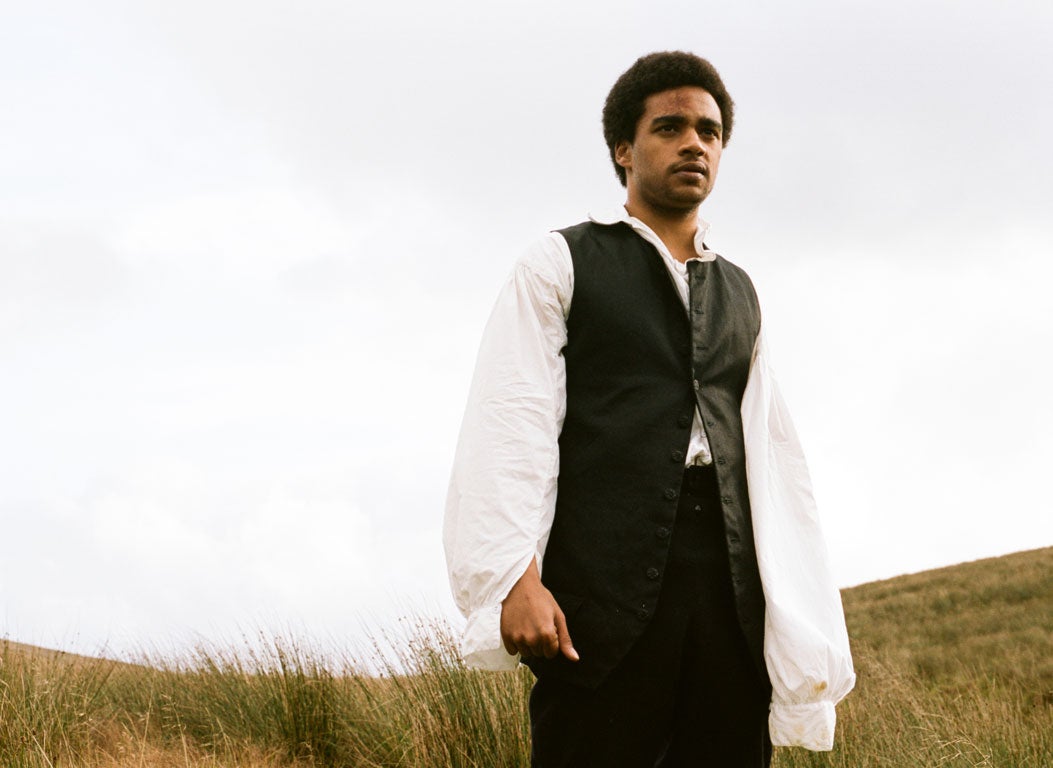It shouldn't be only whites who reach the heights
A black Heathcliffe is a too rare example of imaginative casting, says Stephen Bourne

Your support helps us to tell the story
From reproductive rights to climate change to Big Tech, The Independent is on the ground when the story is developing. Whether it's investigating the financials of Elon Musk's pro-Trump PAC or producing our latest documentary, 'The A Word', which shines a light on the American women fighting for reproductive rights, we know how important it is to parse out the facts from the messaging.
At such a critical moment in US history, we need reporters on the ground. Your donation allows us to keep sending journalists to speak to both sides of the story.
The Independent is trusted by Americans across the entire political spectrum. And unlike many other quality news outlets, we choose not to lock Americans out of our reporting and analysis with paywalls. We believe quality journalism should be available to everyone, paid for by those who can afford it.
Your support makes all the difference.The casting of the black actor James Howson in Andrea Arnold's new screen adaptation of Wuthering Heights is innovative, because the black historical presence in Britain has been invisible in cinema until now.
The few exceptions have included extras in David Lean's Great Expectations (1946) and Oliver Twist (1948), and a central black female protagonist in Jack Gold's The Sailor's Return (1978), set in the West Country of the 1850s.
In 1998, when I launched my book Black in the British Frame – a history of black actors in British cinema – at London's National Film Theatre, I was unprepared for the attacks made upon me by some members of the audience. When I suggested that Heathcliff could be played by a black actor, a gentleman stood up and in hostile tones said this would make nonsense of Emily Brontë's novel, and it was "offensive" to tamper with a classic of English literature, just to be politically correct. I pointed out that Heathcliff's racial origins are ambiguous, that he was discovered by Mr Earnshaw "in the streets of Liverpool". In 1847, when the novel was published, there would have been a small but significant black community living in that seaport. It is possible for the "ragged, black-haired child" to be mixed race. However, I dug an even bigger hole for myself when I suggested that Estella in Charles Dickens's Great Expectations could be portrayed by a black actress. I informed the audience that many thousands of black people were living and working in London by 1861, when Dickens's novel was published and black women in Britain in the Victorian era, though small in number, existed in all strata of society. These included the Crimean nurse, Mary Seacole, and Sarah Forbes Bonetta, the ex-slave whose education was paid for by Queen Victoria. When I suggested that Estella's mother could be portrayed as African or West Indian and married to the convict Magwitch, and that Estella, who was born into poverty, was accepted into English "society" because of Miss Havisham's wealth and patronage, I thought I was going to give the hostile gentleman a heart attack, Admittedly, Dickens did not include black characters in his novels, unlike William Shakespeare in some of his plays, but this does not mean that black actors could not plausibly be cast as some of his characters. This year's BBC television drama Shirley revealed how, in the 1960s, because of racism, it was impossible for the singer Shirley Bassey to play Nancy in the screen version of Lionel Bart's musical Oliver!, even though she was the first choice of the film's director, Carol Reed.
One of the most glaring and shameful omissions from British historical films has been the erasure of the contribution made by colonial West Africans and West Indians to the Second World War. Thousands joined the armed services to support the "Mother Country", and some of them made the ultimate sacrifice, but they are noticeably absent from the many war films produced in the 1950s, and beyond.
The presence of black settlers in Britain since at least the mid 16th-century has been documented in a number of books, but these are barely acknowledged in the mainstream, and the British school curriculum. Consequently a wall of silence is maintained around the history of our nation's black citizens. The same criticism can be made of British historical films and literary adaptations. For young black Britons this is very damaging. A black actor playing Heathcliff is a positive development, but we also need to see more examples of this adventurous casting.
Join our commenting forum
Join thought-provoking conversations, follow other Independent readers and see their replies
Comments